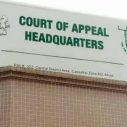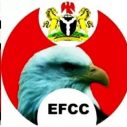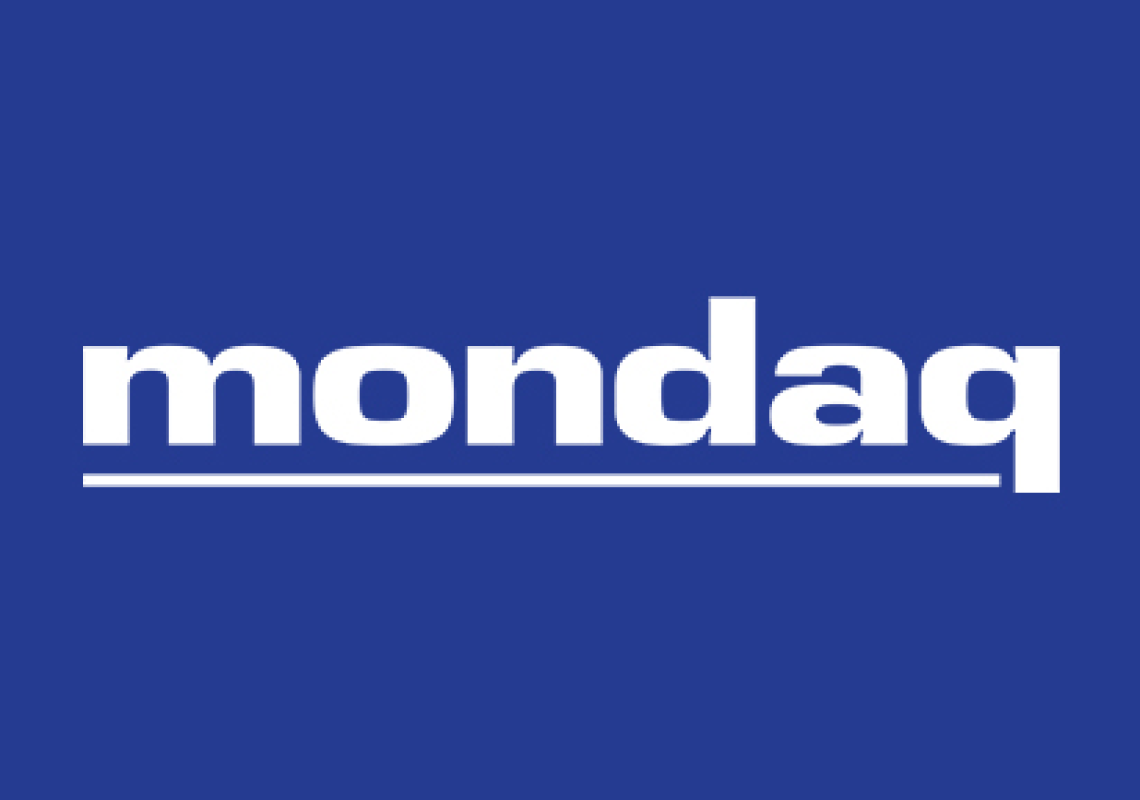Mondaq uses cookies on this website. By using our website you agree to our use of cookies as set out in our Privacy Policy.
A Review Of The 2020 Judgment In Fhc/Abj/Cs/680/2008: Tv Xtra Production Limited & Anor V. National Universities Commission & Zain Nigeria
On 6th May 2020, a Federal High Court delivered judgment in a copyright infringement dispute, awarding damages to the Plaintiff in the sum of N703,000,000 (Seven Hundred and Three Million Naira). This judgment is significant, not just because of the quantum of damages awarded, or its communication of the strong message that Intellectual Property rights are recognised in Nigeria and the courts are willing to support their enforcement. Rather, upon close examination, it raises concerns regarding the poor understanding of fundamentals of copyright law by judges and legal practitioners. In this case review, we have analysed key copyright issues arising from the subject suit, with a view to explaining the proper position of Nigerian copyright law on each point.
The Plaintiff had approached the 1st Defendant, National Universities Commission to endorse “University Challenge” (the “UC Show”), its concept for an educational television quiz programme contested by Nigerian university students. However, rather than endorsing the programme, the NUC approved a similar show “Zain Africa Challenge” (the “ZAC Show”) which was sponsored by the 2nd Defendant, a telecommunications network operator. The Plaintiff claimed that the ZAC Show was an infringement of its intellectual property in the UC Show, and relied on its registration of the proposal document for the UC Show (“UC Show Proposal”) with the Nigerian Copyright Commission (“NCC”) as evidence of its exclusive copyright ownership.
The Court found that there were factual similarities between both shows which infringed the Plaintiff's copyright. Consequently, the Defendants were held liable for infringement of the Plaintiff's copyright in the UC Show, particularly the right of reproduction and adaptation and significant damages were awarded to the Plaintiff in the sum of N703,000,000 (Seven Hundred and Three Million Naira).
While the only issue of law for determination formulated in respect of the copyright infringement was whether or not there had been an infringement, several issues were considered by the Court in the process of arriving at its decision, and they are as follows:
From all indications, the UC Show Proposal is a document that set out details of a television show. This may be described as a television format. While there is no unique statute for the protection of television formats in Nigeria, different elements of a television programme may be protected under the individual IP regimes- such as copyright, trademark, trade secrets.
By virtue of its written form, the Court found that the UC Show Proposal was protected as a literary work. Section 2(1) of the CA provides that literary works shall be protected by copyright where they have been fixed in a definite format, and sufficient effort has been expended on making the work to give it an original character. It is important to note that the fact that a work is recognised as original under the CA, does not mean that the work is particularly unique, or possessing some novelty that must be protected. Here, originality relates to the effort expended in the expression of an idea. This is a minimum standard which does not mean that the work is the first of its kind, or prevent other persons from creating similar works. Accordingly, to recognise that a document is protected by copyright does not mean that any other works of similar expression are automatically infringing. This is where copyright differs from trademarks and patents, other forms of intellectual property protection, which empower owners of registered trademarks and patents to assert their prior registration and prevent the use of similar trademarks and patents, even when they were created in good faith, without any intention to copy the prior registered trademark or patent.
In this regard, it is unfortunate that the judgment reproduces the Plaintiff's language without critique. The language used by the Plaintiff (and permitted/ endorsed by the court) in this case betrays the misunderstanding of the different forms of intellectual property protection. The Plaintiff asserted sole ownership of the “exclusive patent rights” in the UC Show Proposal, claiming that the ZAC Show had plagiarised same, and that the 1st Defendant's refusal to approve the UC Show was a “deliberate attempt to rob the Plaintiff of what it initiated and developed, as well as obtained a copyright and patent right for”. “Plagiarism” is not a cause of action under copyright law. Copyright and patent are distinct intellectual property regimes, governed by different principles. A patent can be obtained through formal application, but copyright inherently exists in eligible original works automatically from the point of fixation in a tangible medium. While patent protection is granted in respect of novel inventions, copyright is recognised in any eligible work provided it meets the minimum standard of originality – a toddler's attempts at coloring at pre-school, and Picasso's works of fine art are protected by the same copyright. Accordingly, the recognition of copyright in the Plaintiff's UC Show Proposal does not in itself mean that similar documents or works cannot be created or executed.
On this point, the Court held as follows: “It must be stated that it is registration by the NCC that qualifies a person to exercise of copyright ownership in Nigeria as stated in Section 2(1) of the Copyright Act (“CA”). It is a person who has registered ownership of copyright in Nigeria that can exercise all the rights that accrue to that registration exclusively. It is in this regard that it is stated that any other person seeking to use any work to which there is copyright ownership can only do so by express permission of the owner of the copyright”.
This statement is manifestly incorrect. Nowhere in the Copyright Act is registration a prerequisite for copyright protection. Rather, copyright protection is automatic and inherent in eligible works, from the moment of fixation.1 The registration referred to by the Court is the Nigerian Copyright e-Registration System (NCeRS) operated by the NCC. The NCC website affirms the statutory position by stating as follows: “Although copyright in a work exists automatically when an original work is created, subsequent registration of the work under the NCeRS is evidence that your creation is protected by copyright; and facilitates recording and proof of the possible date of creation of the work and other facts stated in the application form”.2
Accordingly, while registration of a work with the NCeRS could be helpful in proving that a work exists or was created on a certain date, it is not to be misconstrued as a requirement for copyright protection in Nigeria. Works submitted to the NCeRS are not accorded any difference in status, and in a copyright dispute such as this, the court is not relieved of its duty to subject the work to the expected scrutiny.
At trial, the 2nd Defendant had argued that prior to the Plaintiff's submission of the UC Show proposal and registration of same with the NCC, the ZAC Show was broadcast in other African countries in 2006. In response, the Plaintiff argued that the dispute was in relation to the Nigerian broadcast territory, and the 2nd Defendant did not have the right to broadcast the ZAC Show in Nigeria as a result of the Plaintiff's prior “registration” with the NCC.
By treating the NCeRS registration as a requirement which the Plaintiff satisfied but the Defendants did not, the Court gravely erred in law. At best, the NCeRS helps the Plaintiff prove that the UC Show proposal was created by the date of registration in 2008. By implication, the Plaintiff should have failed to establish the likelihood of copying, as the UC Show proposal was submitted and registered after the ZAC Show was already broadcast in East and South African countries.
While the 2nd Defendant's counsel argued that the ZAC Show was previously broadcast in other African countries as at 2016 prior to the Nigerian production, the Court emphasised that intellectual property rights are territorial.3
Regarding the territoriality of copyright, the case of SMITHKLINE BEECHAM PLC V. FARMEX LTD. (2010) 1 NWLR (PT. 1175) 285 was cited, without quotes. We note that the ratio decidendi of the judgment in this case is that the registration of a trademark in a particular country (such as the UK or Nigeria) is limited to that territory. While Intellectual Property rights are generally territorial, it is instructive to note that there is no registration requirement in Nigeria, and foreign works are extended the same protection as Nigerian copyright works, where the originating country is a party to a treaty or other international agreement to which Nigeria is also a party, per Section 33 of the CA.4
Consequently, the court was wrong to ignore evidence of the ZAC Show's prior existence on the basis that it was not being broadcast in Nigeria before the Plaintiff purportedly registered the UC Show proposal with the NCC. The Court was further wrong to hold that the ZAC Show infringed the copyright in the Plaintiff's UC Show proposal simply because the latter was purportedly registered.
Copyright infringement can be defined as the doing, in respect of a work, of any exclusive acts reserved for the copyright owner without their permission.5 However, it is trite that copyright law protects the original expression of a work and not the underlying idea behind the work.
Mere similarity between works does not amount to copyright infringement. Clearly, the UC Show Proposal and the ZAC Show had the same underlying idea – televised quiz competitions between university students. However, the recognition of copyright in a work does not empower the copyright owner to assert a monopoly over the idea. It simply protects the expression.
To establish copyright infringement in a protected work, a Plaintiff would have to show a casual connection between the works, and that the infringing work copied the infringed work substantially.6 While the Court found that there were substantial similarities between both shows, these similarities were not considered in detail in the judgment. Assuming that the UC Show Proposal were an eligible work, one could say that the Plaintiff's submission of the UC Show Proposal and the subsequent endorsement of the 2nd Defendant's ZAC Show satisfies the casual connection requirement. However, the issue of substantial taking is entirely unaddressed in the judgment, making the conclusion of infringement incomplete. No effort was made by the court to justify the substantive finding of copyright infringement, beyond the misguided reliance on the NCeRS certificate or lack of.
Section 39 of the CA defines reproduction as “the making of one or more copies of a literary, musical or artistic work, cinematograph film or sound recording”. By simple interpretation, the Plaintiff's right of reproduction could only be infringed by the literal physical reproduction of the UC Show Proposal, such as reprinting, or copying the work. Accordingly, the Defendants ought not to have been found to infringe this right as nowhere in the extensive summary of the Parties' respective positions was it claimed that they carried out any unauthorised acts of reproduction.
Adaptation is also defined in Section 39 as “the modification of a pre-existing work from one genre of work to another and consists in altering work within the same genre to make it suitable for different conditions of exploitation, and may also involve altering the composition of the work”. While the Plaintiff could argue that the Defendant adapted its literary work to a cinematographic work, the question remains- whether or not the protection of the UC Show Proposal as a literary work precludes the Defendant from executing a similar programme in the ZAC Show.
The Court's award of damages and costs is premised on its declaratory order that the “1st Defendant's approval of the ZAC Show in favour of the 2nd Defendant constituted a breach of the Plaintiff's copyright in the UC Show Proposal.” Whether one agrees that the 2nd Defendant infringed the Plaintiff's copyright by producing the ZAC Show, the 1st Defendant's endorsement or approval of the 2nd Defendant's endeavours in this regard cannot be construed as an act of infringement under the CA.
This leaves us with the further question of how the declaratory order was arrived at in respect of the 1st Defendant, and whether the 2nd Defendant should be compelled to pay damages based on a declaratory order that does not actually hold it responsible for the alleged infringement.
Finally, we observe that the 1st Defendant did not participate in the trial, and parts of the 2nd Defendant's evidence were expunged from the record. It is on this basis that the Court accepted the Plaintiff's evidence as unchallenged and uncontroverted by the Defendants, thereby deeming the averments in the Plaintiff's pleadings as facts admitted.
Without delving into the propriety of the evidence admitted as this is beyond the scope of our present enquiry, it is our position that the Defendants' action or inaction in the proceedings do not leave room for the grave misinterpretation of the CA as occurred in this case.
The burden of proof in civil cases remains on he who alleges, not he who denies.7 In copyright infringement action, ownership of copyright in a work is not proven by the issuance of a registration certificate from the NCC. Rather, the Courts are charged with the responsibility of examining the facts and making a determination on the balance of probabilities. This was avoided entirely by the Court in this case.
At first glance, it appeared that the judgment in this case recognised copyright protection in television formats under Nigerian law, and strongly affirmed the value of copyright, with the significant damages awarded for infringement. However, upon close examination of the facts and the reasoning of the court as outlined above, it is clear that the court was mistaken (or misled) in its interpretation of the Copyright Act on fundamental issues. In closing, we hope that courts are better guided, and lawyers, better advocates in assisting the court to distil the legal issues in copyright and intellectual property claims.
We expect that the 2nd Defendant would pursue an appeal in the Court of Appeal, and in the interim, we hope that other trial courts are guided by the precedent of superior courts and proper interpretations of the Copyright Act.
Footnotes
1. Section 1(2), Copyright Act
2. Nigerian Copyright Commission, About NCeRS http://www.eregistration.copyright.gov.ng/ncc/about
3. The Court relied upon Section 2(1) of the CA which states that copyright shall be automatically conferred (that is, “at the time when the work is made”) on eligible works created by Nigerian citizens, Nigerian residents or corporate bodies incorporated in Nigeria.
4. Nigeria is a party to the Berne Convention alongside 178 countries and territories. https://wipolex.wipo.int/en/treaties/ShowResults?search_what=C&treaty_id=15 Copyright in Nigeria, therefore, is not limited to works created within the territory. Rather, works first published in other countries, or created by foreign citizens are generally entitled to protection in Nigeria.
5. Section 14(1)(a), Copyright Act
6. Adejoke Oyewunmi, Nigerian Law of Intellectual Property, University of Lagos Press (2015/2019) pp. 85 – 88
7. Osawaru v. Ezeiruka (1978) 11 NSCC. 390, 397
The content of this article is intended to provide a general guide to the subject matter. Specialist advice should be sought about your specific circumstances.
© Mondaq® Ltd 1994 – 2021. All Rights Reserved.
Forgot your password?
Free, unlimited access to more than half a million articles (one-article limit removed) from the diverse perspectives of 5,000 leading law, accountancy and advisory firms
Articles tailored to your interests and optional alerts about important changes
Receive priority invitations to relevant webinars and events
You’ll only need to do it once, and readership information is just for authors and is never sold to third parties.
We need this to enable us to match you with other users from the same organisation. It is also part of the information that we share to our content providers (“Contributors”) who contribute Content for free for your use.





